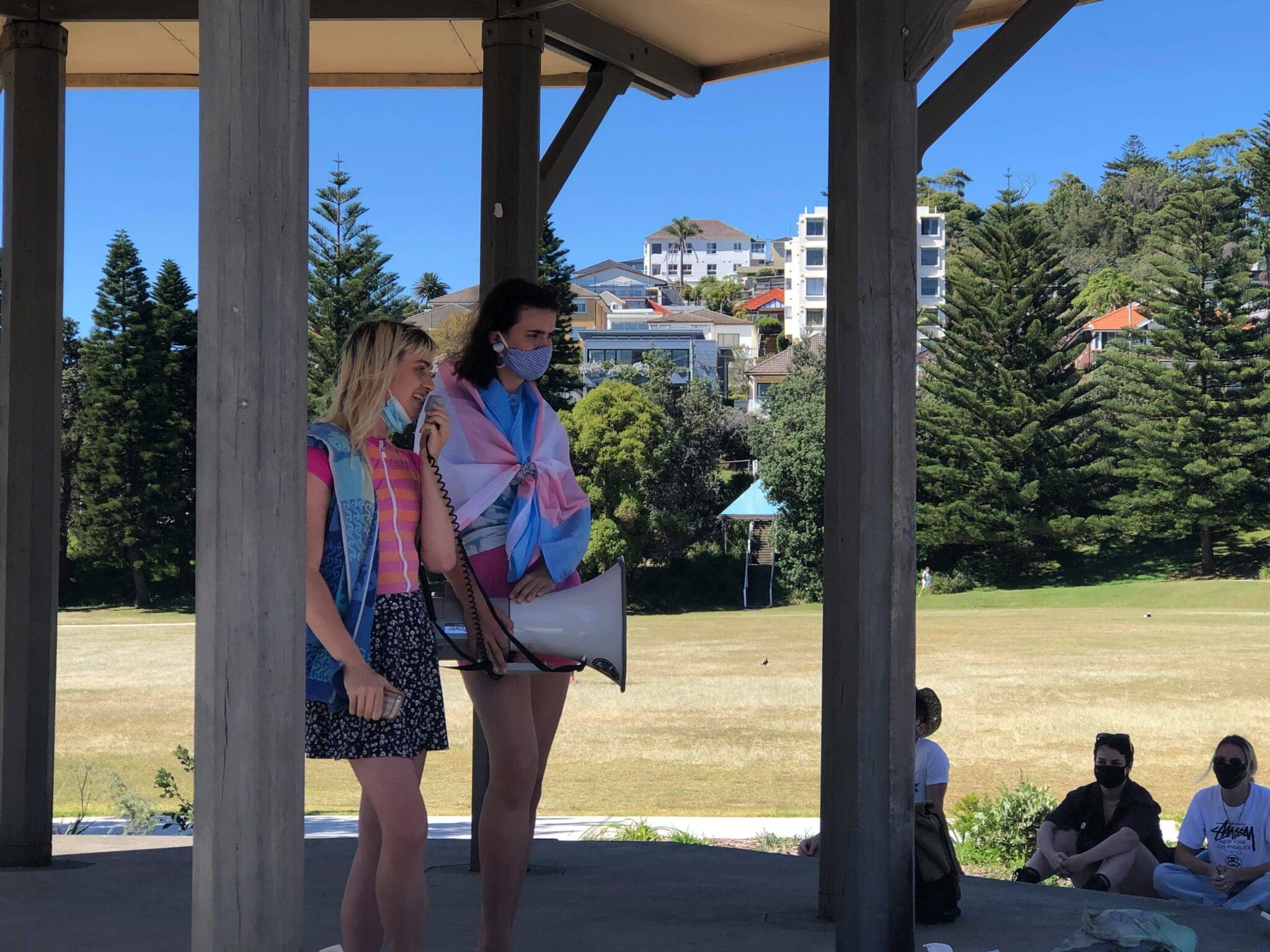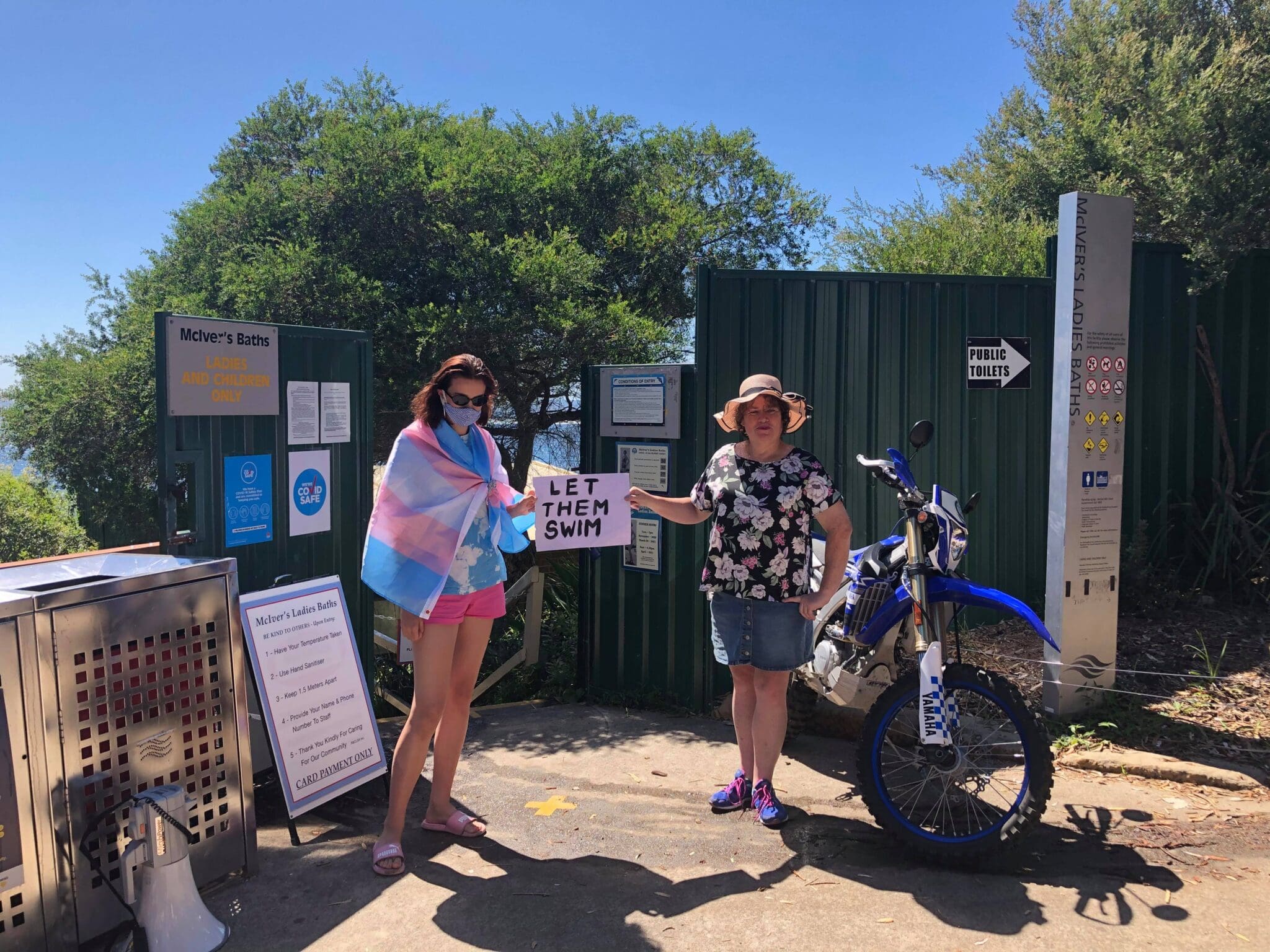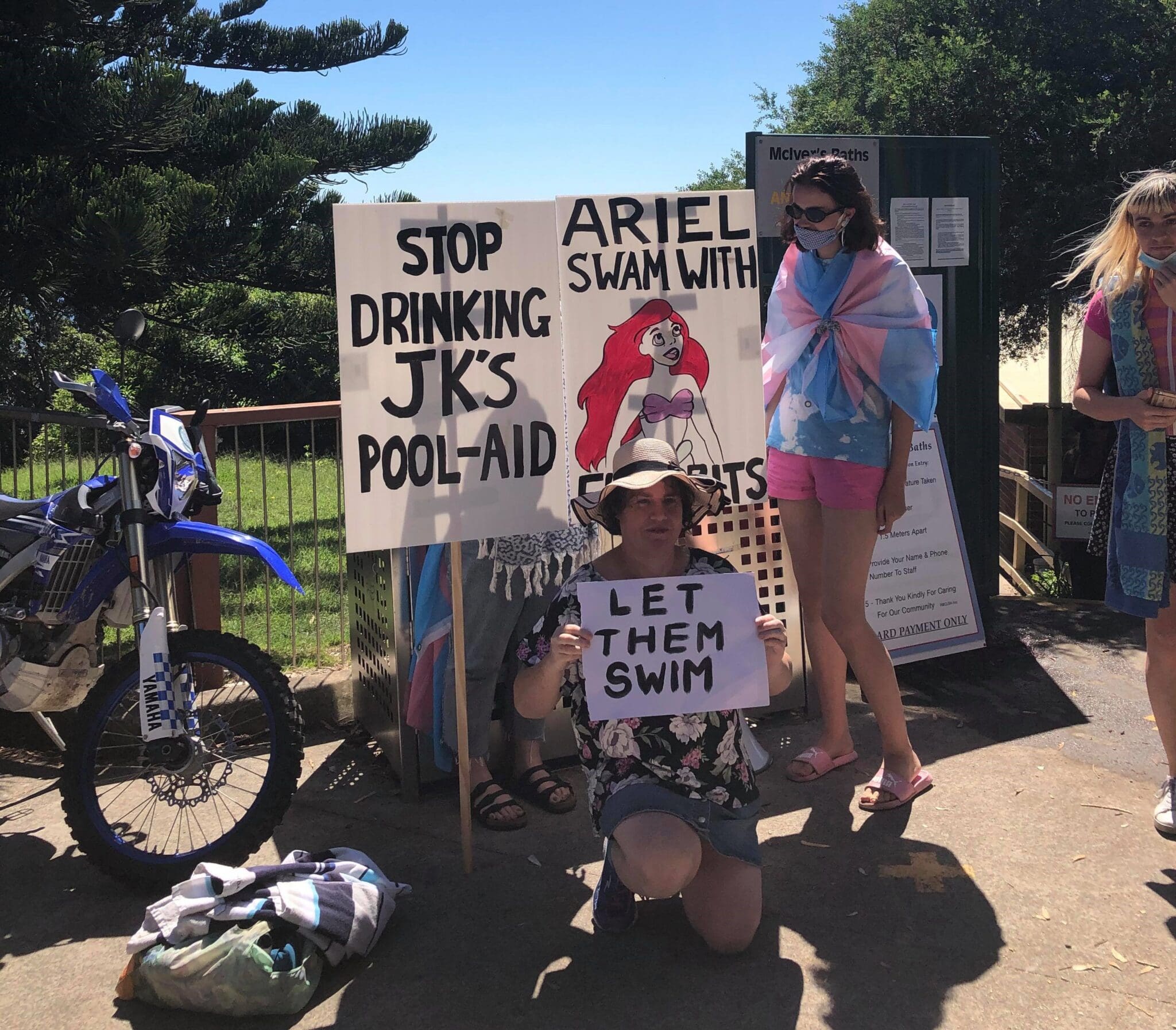CW: Transphobia
About 100 protestors gathered this morning at the Coogee Pavilion to protest the recent amendment of the McIver’s Women’s Baths entry policy, prohibiting the entry of trans women who had not undergone full gender affirming surgery. The demands included that the pool release a trans-inclusive statement and issue a full apology to those impacted by the exclusive ban.
McIver’s Ladies Baths, built in 1886, is Australia’s only coastal pool to be granted an exemption from the Anti-Discrimination Act by the NSW government, in 1995. Recently, the Randwick and Coogee Ladies Swimming Association (which operates the baths) attracted criticism for a response to a question on their website, which asked: “Are transgender women allowed?” “Only transgender women who’ve undergone a gender reassignment surgery are allowed entry,” the club stated.
This exemption from the NSW Anti-Discrimination Act meant they could notionally bar trans women from entering the women’s and girls baths unless they had undergone full gender affirmation surgery — a procedure costing up to $30k. Both the lack of clarity and complexity of the very definition of transgender within the Anti-Discrimination Act resulted in the baths becoming inaccessible to many trans women on the basis of both the cost and physical invasiveness of such surgery.
Dani Cotton, one of the organisers of the swim-in, opened the protest with an Acknowledgment of Country and welcome to all participants and speakers. They welcomed the first speaker, trans activist Janet Anderson, who gave a rousing opening address that emphasised that “trans folk have been silenced for too long” within the cultural mainstream.
Anderson plugged the change.org petition that has amassed over 12,000 signatures in the past week since its creation. She questioned the ongoing resistance of institutions and venues to trans-inclusive action, asking: “What will it take for organisations like this to understand that this is what the public wants?”

Anderson continued with an analysis of the Baths ban, first highlighting the misconception that “all trans women want gender affirming surgery” and second challenging the notion that bottom surgery is a necessary means of confirming gender identity, labelling it as “plain outdated.”
She reflected that “ambiguous policy leaves [the] door open to discrimination,”, which is fundamentally a bad outcome. She concluded, with vocal support from participants, that “this is not about keeping women safe, this is about policing women’s bodies… we must ensure that all women are welcome to use the baths… [not just those] who fit [an inappropriate, narrowly defined] idea of womanhood.”
The next speaker was Charlie Murphy, recently elected Mardi Gras Board member (one of the first trans women to be elected to the board) and Pride in Protest organiser. She opened with a rousing call to action, demanding that “trans women… not be considered second class citizens”. She reflected that trans women targeted by the baths policy “should not feel like they have to justify their existence… or expect that our gender is to be judged by whether or not we have had bottom surgery.”
Murphy echoed Anderson’s point that the NSW Anti-Discrimination Act is incredibly unclear, drawing striking parallels between the NSW birth certificate gender marker requirements and those in South Australia. She stated that “a trans woman cannot change her gender marker on a NSW birth certificate without undergoing incredibly expensive bottom surgery. In SA you can change gender markers without bottom surgery”. A SA trans woman who travels 18 hours to the baths could, notionally, access the baths, whereas a trans woman living in Coogee without surgery could not. Ultimately, Murphy encouraged all participants to understand that “gender should not be determined by what’s in your pants”.

The spirit of queer solidarity was strong amongst participants, with Murphy saying that “today shows me that this is what queer solidarity is about. Queer solidarity is solidarity for everyone.”
Each speaker encouraged attendees to also show support and attendance at the upcoming Invasion Day protest on January 26th, 9am at the Domain. They stressed that Indigenous and First Nations justice are indelibly linked to queer struggle and resistance.
After the speak out, everyone went to the Baths entrance, where mainstream media reporters and photographers documented activist signage. The pool was at capacity with a number of women at Coogee Baths staging a “swim-in” concurrently with the external protest.
Cotton announced that the Deputy Mayor of Coogee had come out in support of the petition and protest, and led a brief chant : “When trans rights are under attack, what do we do? Stand up, fight back!”
The snap action was dispersed organically at around 10:45, with most people heading to the main beach and a small number joining those who had entered the baths to defy the transphobic rule.





